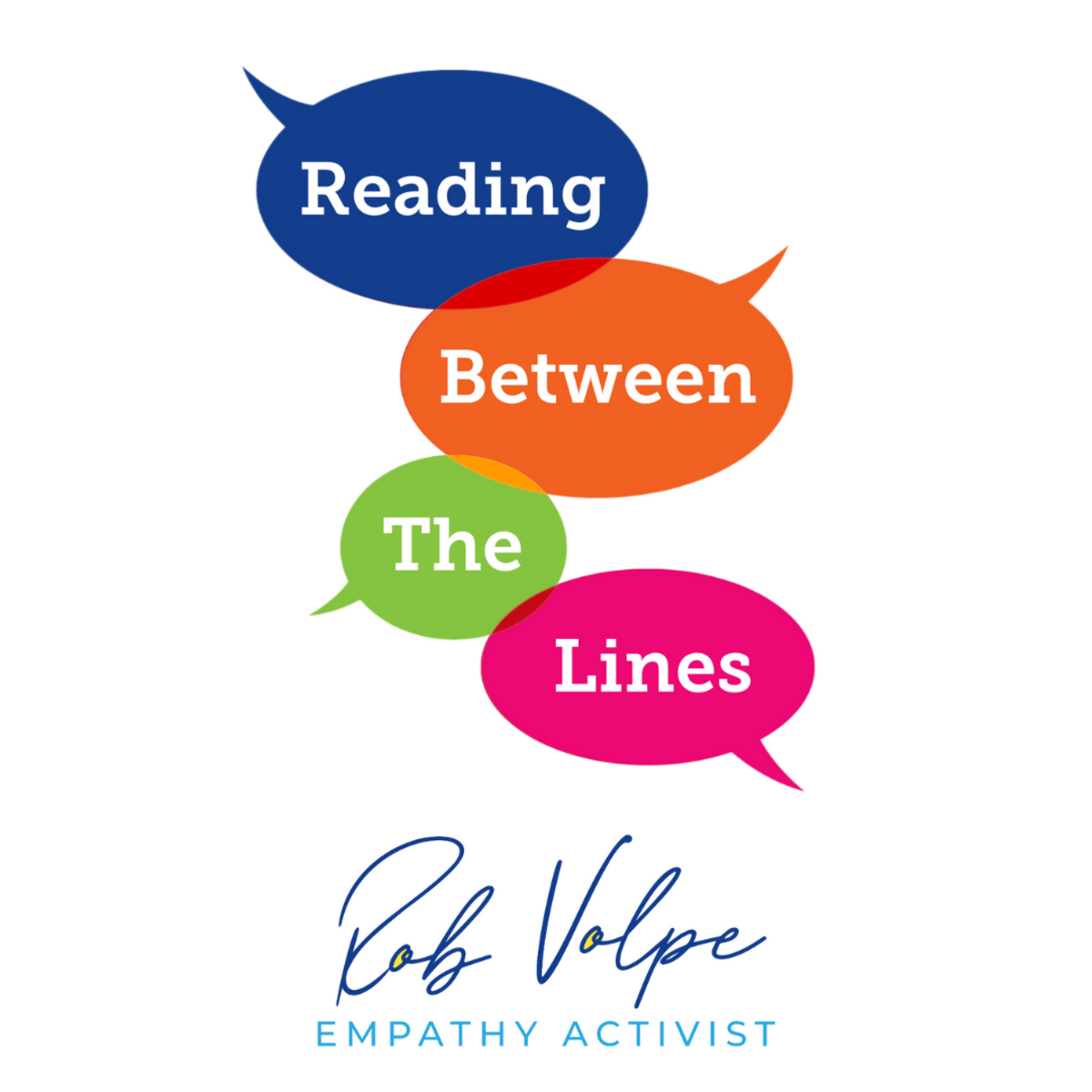Table of Contents
→ From surfboards to solitary: Stories that changed my perspective
→ Coming Up…
Hi!
Thank you for subscribing! I’m glad you are here. I hope your summer is going well.
I’m trying something new this edition. I’m keeping the content focused to one piece and I’m recording a video, posted on You Tube and embedded below (just scroll down till you see my face) so if your preference is to watch or listen, that is available as well as reading.
The idea came to me recently as: 1) I know people are turning more and more to video content; 2) I dislike newsletters that are video only as I I often want to read in silence; 3) You Tube is the place people go when they want to learn how to do something and empathy is something people want to learn how to do. So this seems obvious yet I do value your opinion. I’ve kept it pretty low tech and cats may scamper in the background from time to time but let me know if this is a positive add for you or you have another suggestion.
As always, I enjoy hearing your thoughts, experiences and questions, always feel free to email me [email protected] - and please share with your community as well.
On Surfboards and Second Chances:
Two Memoirs that Made Me Think
How do we go about talking to people who are different from us?
It’s a question I hear a lot from friends, clients and readers. We’re all grappling with how to navigate conversations across ideological lines, especially with those we love and in today’s world. The discomfort is real.
But what if we aren’t the only ones feeling awkward? What if they’re just as unsure about us?
Recently, I read two memoirs that each, in very different ways, offered powerful insights into connection, discomfort, and the work it takes to have empathy.
Book One: It’s Only Drowning by David Litt
You may know David Litt as a former speechwriter and joke writer in the Obama White House. His new memoir, It’s Only Drowning, is part self-discovery, part surf saga, and part attempt to better understand his brother-in-law, Matt. You see, Matt is a Joe Rogan fan whose worldview differs wildly from Litt’s as best as the author can determine from their limited interactions before the book’s story takes place.
The premise seems simple: David takes up surfing to find focus and inspiration after the pandemic left him with that lower case ‘t’ trauma that is unresolved as I believe it is in so many of us. He also wanted to connect with Matt. What unfolds is a vulnerable, honest account of trying (and failing, and trying again) to build bridges on the waves and in conversation.
There are several scenes that stuck with me as providing real empathy lessons: After a dinner where Matt asks David whether he thinks Trump will go to jail, David shares his thoughts in detail. But later that night, it hits him. He never asked Matt what he thought. David monologued instead. He missed the opportunity to listen.
To me, that moment is a wake-up call, and a perfect reminder of what real connection requires. We need to stay curious, not just about sharing our point of view, but about hearing someone else’s. Otherwise, we’re just reinforcing our own narrative. And who’s going to respond well to that when you are trying to find common ground.
We've got to keep our curiosity alive. We want to ask other people for their opinions, and it's so important that we stay open to the answer. Otherwise we're just monologuing, and that's not something that people respond to properly. They're not going to be receptive to that if you're just reaffirming your own worldview
Tone matters too. If you come across as absolutist—like it’s your way or the highway—don’t expect open-hearted dialogue. Empathy requires presence. It requires asking. It requires listening.
David’s journey also includes moments of being judgmental of others himself. Of the “Bro” surfers, of their appearances, of people who didn’t fit his mold or ideological beliefs. And over time, he owns those moments. That’s part of what makes the book resonate. It’s not just about overcoming physical fear (though there’s plenty of that); it’s about challenging our biases.
Reading It’s Only Drowning reminded me of my own surf story which began years ago in Waikiki and later at a surf camp in Nosara, Costa Rica (David writes about going to a similar school there in his book!). My own attempt to become a surfer didn’t exactly stick, but those experiences of trying connected me further to the author and the book.

Connecting with others can be like waiting to catch a wave. In Costa Rica, after days of rough surf, we had a long, frustrating wait on this evening. Sometimes the opportunities are few and far between. Pretty sunset though. January 2015
If you’re struggling to connect with someone who sees the world differently, you don’t have to start with politics. Start with a shared interest or activity. Something, anything, that reminds you you’re both human. Hold onto it and let that be the opening. And then approach the conversation with curiosity—not confirmation.
And yes, this is where the 5 Steps to Empathy come in. All five. Dismantle judgment. Ask good questions. Actively listen. Integrate into understanding. Use solution imagination. (More on that in my book if you haven’t read it yet.)
Book Two: My Mistakes, Your Lessons by Ricardo London
Full disclosure: I know Ricardo. He’s been a participant in the “Navigating to a New Normal” study I’ve led for the past five years. His memoir, My Mistakes, Your Lessons, challenged my ability to have empathy in ways I didn’t expect. I think it might challenge you too, and in doing so, strengthen our empathy muscles.
Ricardo is an anti-recidivism counselor in California who spent 43 years in prison for his role in a double homicide committed in 1970s San Francisco. His book recounts the abuse he suffered as a child, how that trauma led him into gangs, the resulting time behind bars, and his decision — made for the sake of his son — to turn his life around.
As I mentioned earlier, this book really forced me to pause and reflect. I had to confront my perceptions about convicts and the crimes they committed. I also had to explore my attitudes and behaviors around how what I know or discover about a person and how it then informs your perceptions of them. And even though I now know Ricardo and talk to him multiple times a year, would I be as accepting of someone else who has served their time and moving along a path of reform?
Ricardo doesn’t sugarcoat the brutality of his life. From the beatings both physical and emotional from his father to navigating life in prison. He also doesn’t dwell there for too long. He focuses on transformation and the struggle to heal oneself when people choose to stop the cycle and go down a different path.
His honesty about the relationships he lost, particularly with his mother who died while he was incarcerated, and his son, who grew up without him, touched me. So did his commitment to making good by helping others make different decisions so they have different outcomes.
Finally, he issues a plea to parents everywhere to become aware of the impact their actions have on the children in their lives. We all have dark shadows that we wrestle with. In Ricardo’s case, his father’s shadows overcame him, driving Ricardo into a different type of family and a life of criminality. But it doesn’t have to be that way for others, and Ricardo is eager to help.
While reading My Mistakes, Your Lessons, it made me reflect: How far am I really willing to go to understand someone with a completely different experience from mine? Can I hold both sides of who someone is now and what they did then?
The further we get away from our lived experience, the more work we have to put into having empathy.
Empathy doesn’t mean excusing. That’s not the role of empathy here, at least in my mind. But it does mean expanding our understanding, especially when we’re far removed from someone else’s reality. The further away their experience is from ours, the more work we have to do to meet them in empathy.
And if we want empathy from others? We have to go first. We have to be vulnerable. We have to share our story, warts and all, and trust that some people will lean in, not away.
I’d love to know if you pick up either of these books. They raised important questions for me, and I’d welcome a chance to talk through them, particularly Ricardo’s book. reading.
Let me know your thoughts. And if you’re in that kind of conversation with someone soon—stay curious. It really does make all the difference.
Please email me [email protected]
Coming Up…
Well, current events got in the way of a recently booked talk I was going to give in LA last month to PIHRA. We’ve rescheduled for September 17 when, hopefully, ICE raids and military presence in downtown LA will have settled down.
If you or anyone you know is in HR in LA, you can register here for this breakfast meeting and workshop. I’d appreciate it if you’d spread the word.
There’s more events on the books but I’ll save that for a subsequent edition.
If you have interest in strengthening the leadership skills, customer experience, core values, communication norms or systems and processes in your organization, let’s talk. I have openings in my calendar through the fall. Email me [email protected] to get the discussion started.
I hope you liked this edition.
Please help spread the word - pass this newsletter along to someone you know that might also enjoy it. Either forward this email or invite them to subscribe at the click of the button below.
Reading Between the Lines delivers of-the-moment insights into empathy and human behavior; expect practical tips on using the skill of empathy in everyday life and exclusive updates to keep my community close. All on a biweekly basis.
The content of this newsletter is shaped by what you respond to so please email me your thoughts, questions and topics you’d like to explore with me.
As always, a quick reminder of what you can expect in each edition of Reading Between the Lines…
My thinking is here in the newsletter. Links are for diving deeper.
I strive to deliver ‘news you can use’.
I also share insights into human behavior and topics I’m thinking about.
I include amusing or interesting “slice of life” moments.
The Q&A feature is based on questions that come up in conversation - please send me your questions!
I’d like to hear your thoughts- ‘reply’ to this email or reach out directly to: [email protected]



